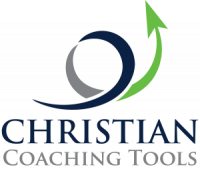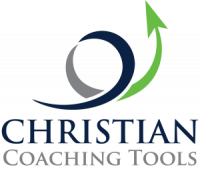
by Gary Reinecke | Dec 4, 2021 | Coach Training, Uncategorized |
How many times have you found yourself overwhelmed by your growing stack of tasks and responsibilities? Once a month? Once a week? Daily? Most of us tend to overreach, taking on more work than we have capacity for and stretching our capabilities too thin.
In coaching, it is so important to understand the time and energy this job requires and to know your own personal thresholds. Some of us can coach a handful of people and still balance the rest of our lives. Some of us need to focus on just one or two clients. Some of us have other jobs and responsibilities that need to come first. When coaches lack that ability to assess their bandwidth, they end up burning out and becoming ineffective. Today we want to ask you the following questions: Have you assessed your personal and professional bandwidth lately? Are you in place to take on more?
[Tweet “Have you assessed your personal and professional bandwidth lately? “]
As we have been looking at self-assessment in this most recent blog series, it would be impossible not to include one of the behavioral expressions: prioritize coaching. This requires a deeper look into how we make adjustments to our commitments in order to prioritize coaching relationships.
When I first began my coaching ministry, I was on staff with a missions agency AND working part-time at an inner city church. As time passed, I became less enamored with the complexities of local church ministry, and gravitated more and more to the coaching I was doing with pastors and church planters. Both were good. Eventually, however, I found myself having to make a hard choice between the two. After seven years as a co-vocational missionary/coach, I moved off church staff and moved into coaching full time.
That was in 1985. A lot has occurred in the Christian coaching world since then, but as you can see after nearly thirty years, I’ve made adjustments to prioritize coaching in my ministry.
[Tweet “…most of us tend to overreach, taking on more work than we should and stretching our capabilities too thin”]
This is still a growing edge for me. I imagine this might be a growing edge for you as well. Let’s assume you are the lead pastor of your congregation. The clearer you are in what you want to achieve, the easier it is to know who to coach, who not to coach, and what adjustments need to be made.
I look to the gifts of various individuals in Ephesian 4:11-12 as a backdrop:
11 So Christ himself gave the apostles, the prophets, the evangelists, the pastors and teachers, 12 to equip his people for works of service, so that the body of Christ may be built up.
This equipping role includes coaching as an important–if not primary–tool that leaders have at their disposal. So, when I mention coaching in ministry, I am talking about equipping leaders to be their best selves. This makes choosing the people you coach a very important decision.
Whom should I coach?
One important step in qualifying potential coaching clients is to create a proposal. I ask three simple questions to clarify what the leader is looking for from me in a coaching relationship, then I write this up in a document (coach agreement) so that we can review it together.
Three Clarifying Questions to ask Prospective clients
- What do you want to accomplish?
- How will you know when you have achieved your objective?
- What do you want the impact to be for you and your ministry?
The answers will inform you whether this is a good fit, but that is simply the first step. The next set of questions will help you determine if you want to coach them.
Ask yourself these questions about each potential coaching client:
- To what degree am I excited about the client’s chosen goal?
- What level of personal affinity exists between me and the client?
- What qualities about this client may be challenging for me to work with?
- To what degree do I feel I will be helpful to this client?
Now you have enough information to inform your decision. But there is still one more important question to ask yourself: do you have the time and energy to take this on? When you skip this step, you will most likely say “yes” to things you should say “not yet” or “no” to. This is the point where the behavioral outcome Prioritize Coaching needs to take a front seat. The heavy lifting is qualifying whom you should coach. Once that question is answered then you must make the necessary adjustments.
The principle I have learned to honor and follow is: don’t add a coaching relationship unless you remove something! Adding commitments to an already full load is a recipe for burning out and becoming ineffective. However, when you make room for new commitments, coaching relationships are:
- Life-giving
- A way to steward your gifts
- A blessing from God
[Tweet “don’t add a coaching relationship unless you remove something!”]
If you are interested in a full explanation of how our team (namely Dr. Bob Logan & Dr. Chuck Ridley) arrived at the competencies of a Christian Coach – CLICK HERE. And check out our new resource for Christian Coaching – ChristianCoachingTools.com!

Identify areas that need your focused attention as a Disciple Coach
DISCIPLE COACH QUIZ

by Gary Reinecke | Nov 27, 2021 | Uncategorized |
One thing that has become very clear to me as a coach is this: the journey for personal development never ends. There is always more to learn, new ways to push yourself, and areas in which you can grow. Coaches know that this is a never-ending process, but even the best of us can reach a comfortable place in our work and become a little stagnant. The challenge is in consistently identifying ways to develop yourself – and then following through.
We have spent the last few blogs looking at self-assessment, and this week we’re looking at the behavioral expression: personal development which is focused on determining ways you can improve as a coach and create action plans for implementation.
There are so many ways to improve as a coach, but here are three that we have found especially valuable:
- Periodically work with a spiritual director, leadership coach, or life coach for your own personal development.
- Give yourself permission to enjoy a taste of learning again.
- Brainstorm potential resources. Whatever area(s) you want to develop in as a coach, take stock of the available resources. Consider books, worksheets, tools, and people.
Recently, I’ve felt that an area I’ve been neglecting and want to grow in is my spiritual formation. This impacts my ability to listen for and discern the voice of the Holy Spirit – the competency we call Abiding in Christ. I’ve reflected on ways to grow in this area, and one of the realities for me is that I want to do this in community, not in isolation. I also want to develop my spiritual formation over a period of time, not overnight. And, finally, perhaps another insight for me is that I wanted an incentive – like traveling to a new place.
As a result, I’ve decided to participate in a three-year cohort as part of a group in the Fuller Doctoral program. In September, we met for 10 days at a retreat center where we laid the foundations of spiritual formation. One of the exercises we did that set the tone was the opportunity for each of us to share our stories with our classmates. Each day, three students were given twenty minutes to share the high points, challenges, and lessons from their own lives. This in itself was transformational. In the evenings, after a long day of learning, we met in small groups to practice the skills of listening and asking questions (and in the vernacular of the Spiritual Director – to “hold space” – the idea of sitting with a person as the Holy Spirit ministers to them). By the end of each day we had greater clarity on our individual journeys and ways we could help others along theirs.
In between our annual ten-day retreats, we meet in small groups to practice spiritual direction with our classmates. In addition, I have enlisted the services of a seasoned Spiritual Director for my spiritual formation journey. The climax of the program is a trip to Iona, Scotland, where we will be meeting for our final retreat. All of this will contribute in a significant way to my personal development as I continue to follow Jesus on my spiritual journey.
Here are five reflection questions to help you discern where to focus your personal development:
- What do you sense the Lord is saying to you about your personal development?
- In what areas are you strong?
- What areas of your life need more attention?
- Brainstorm ways to address that area(s).
- What is the most important thing you can do during this season to develop that area?
If you are interested in a full explanation of how our team (namely Dr. Bob Logan & Dr. Chuck Ridley) arrived at the competencies of a Christian Coach – CLICK HERE. And check out our new resource for Christian Coaching – ChristianCoachingTools.com!

Identify areas that need your focused attention as a Disciple Coach
DISCIPLE COACH QUIZ
Photo by Khamkéo Vilaysing

by Gary Reinecke | Nov 20, 2021 | Coach Training, Uncategorized |
If you have been following our blog, you’ve likely taken an interest in coaching. Perhaps you’re already a professional coach, thinking about taking on more clients. Or maybe you are weighing the idea of becoming a coach. No matter where you are on your journey, it’s important to assess your readiness to coach!
Today we’re discussing how to monitor readiness to become a coach. This is a part of self-assessment that is crucial to coaching – you need to know where you are on your journey before you can know where you should go.
Monitoring readiness is the ability to determine and monitor your emotional, spiritual, and physical readiness to become a coach (and consider seeking professional assessment.) Monitoring your own readiness to serve as a coach means being willing to take an unfettered look at yourself and where you are in life. Coaching is a large responsibility and requires a lot of time and energy, a lot of specific knowledge and a deep understanding of your personal strengths and weaknesses. Sometimes other areas of your life require more immediate attention, and the time may just not be right to take on coaching. That’s okay! There will be a season where the time will be right, and you’ll be in the right place in life to take it on. Knowing your own bandwidth will make you a better coach and a happier, healthier human.
There are a number of things to consider when monitoring your readiness to coach. Here are a few exercises we recommend:
- Read through the list below and pray. Ask for God’s direction regarding your readiness in each area:
- your emotional readiness
- your relational readiness
- your spiritual readiness
- your time management
- your energy readiness
- your physical health readiness
- your season of life readiness
- your coaching skills readiness
- your mental readiness
- Get a coach competencies assessment. This is the perfect time to discover a new coaching tool: the 360 degree online coach assessment. This is a consistent and dependable research-based assessment to provide an accurate picture of where you are as a coach. It is based on nine competencies and their behavioral expressions, created by Dr. Bob Logan, Dr. Chuck Ridley, and myself.
- After your self-assessment and professional assessment, work with a coach mentor to help guide you on your journey of ongoing growth and development as a coach.
If you are interested in a full explanation of how our team (namely Dr. Bob Logan & Dr. Chuck Ridley) arrived at the competencies of a Christian Coach – CLICK HERE. And check out our new resource for Christian Coaching – ChristianCoachingTools.com!

Identify areas that need your focused attention as a Disciple Coach
DISCIPLE COACH QUIZ
Photo by Andrea Piacquadio from Pexels

by Gary Reinecke | Nov 13, 2021 | Coach Training, Personal Development |
In last week’s blog, we took a broad look at self-assessment, one of the core competencies of a Christian coach. This week, we begin to dive deeper into what self-assessment actually means, how it is expressed through our behavior and how we can grow in awareness of ourselves. Truly understanding our own motivations and our own strengths and weaknesses will ultimately help us to better meet the needs of the people we coach.
Self-assessment is developed through several behavioral expressions. In the upcoming weeks, we will explore each of these expressions, starting with Interpersonal Awareness. Interpersonal awareness means becoming aware of and evaluating the strengths and weaknesses you bring to your coaching relationships.
I recently reflected on one of my own weaknesses when it comes to coaching: I tend to interject my own experiences into my coaching practices. As a coach, part of our job is to stay indifferent and detached. This isn’t to say we don’t care, but it’s important not to overreach and push our own opinions or agendas into the lives and situations of our clients.
As a recent example of this, I was working with a client who was navigating the best way to mobilize the house churches in his network. During the Covid pandemic, his church broke down into smaller house churches. It was a large congregation, splitting into thirty house churches, which eventually grew to fifty. That’s a lot to manage! We talked about the model for a house church and the best way to train a leader. I definitely have a lot of opinions in this area, and it was difficult for me to stay indifferent as he was choosing a route I might not have taken myself. I came to realize that the path he was choosing was actually the better option for that particular congregation.
It’s important to have an understanding of ourselves as we coach others. Because I recognize my tendency to assert my own opinions, I can intentionally hold back those opinions when it’s not appropriate to share them. A lot of this comes down to our particular behavioral styles; we don’t want to superimpose our behavior onto a client. If you aren’t sure what your behavioral style is, I’d recommend looking into DiSC.
In addition to deepening our self-awareness, we also need some prior understanding of our clients. The more we know about them, the more we can adapt to their needs. A good coach is aware of how their strengths and weaknesses interact with another’s.
Here are a few questions to ask yourself before your next session with a client:
- Do I tend to be dominant or be more passive in relationships? What about my client?
- Do I tend to control a conversation or go with the flow? What about my client?
- Is my processing slow or fast? What about my client?
- Am I task-focused or driven by the relationship? What about my client?
- Do I think in terms of the big picture or do I focus on the details? What about my client?
If you are interested in a full explanation of how our team (namely Dr. Bob Logan & Dr. Chuck Ridley) arrived at the competencies of a Christian Coach – CLICK HERE. And check out our new resource for Christian Coaching – ChristianCoachingTools.com!

Identify areas that need your focused attention as a Disciple Coach
Image by Christina Morillo on Pexels

by Gary Reinecke | Nov 8, 2021 | Coach Training, Uncategorized |
Self-Assessing is the ability to understand our own strengths and weaknesses. It helps us adapt to new people and unfamiliar circumstances, to know when to take on new opportunities and to see when we are pushing ourselves towards unhealthy places. In today’s vernacular, the concept is best captured by the term Emotional Intelligence (EQ). Self-assessment begins by asking the question, “How self-aware are you?” or “How is my emotional intelligence?”
Problems that arise with low EQ:
- You will miss subtle ques people send
- You will take on more than you should
- You will lose the ability to focus
- You will become reactive
- You will frustrate people
- You will resent your work
- You will begin to disengage from life-giving relationships
In 2010, my coaching ministry was on a growth trajectory. In my personal life, however, my family was going through a deep, dark tunnel that took both of my children through serious health challenges. I really did not navigate that season well on a personal level. I was anxious about my kids’ health and did not know how to resolve my inability to “fix them” and allow God to be my source of strength.
We survived that season – but my faith was stretched to new limits. Ministry-wise, I showed up. It was a wonderfully fruitful season with new opportunities, but if I were observing my emotional state from the outside, it would have looked like a train wreck. My mind constantly pondered the future scenarios with my kids’ struggles at the center. Thankfully, the Lord helped me, my wife, and our children survive and thrive in the years to come.
If I could have done a do-over that year, I would have desired to be more like Mary than Martha (John 15). I wish I would have spent more of my energy on “being with Jesus” instead of “doing the work for Jesus.” Through this struggle, I learned the important lessons of maintaining margins and creating the bandwidth to do those things the Lord put before me. It meant focusing more intently on the Lord’s work and accepting what I could not control.
Here are three gauges that leaders must consider when they take a coach approach to assessing their own bandwidth:
- Emotional – Do I have the energy to give to this new opportunity?
- Physical – Am I in a good place with my exercise, sleep and diet?
- Spiritual – How would I describe the current condition of my soul?
My sense is most of us are running too fast. We are striving too hard. We are pushing the margins of our emotional, physical, and spiritual health. Take time today to assess your bandwidth. Find a friend to talk about how you can maintain margins in your life. Do the hard work of assessing your strengths and weaknesses as a leader who is taking a coach-approach to ministry.
In the following weeks I will take a deep-dive into the behavioral outcomes that make-up the competency of self-assessing. If you are interested in a full explanation of how our team (namely Dr. Bob Logan & Dr. Chuck Ridley) arrived at the competencies of a Christian Coach – CLICK HERE. In case you missed it, last week we introduced a new resource for Christian Coaching – ChristianCoachingTools.com!

Identify areas that need your focused attention as a Disciple Coach
DISCIPLE COACH QUIZ
Photo by Julien L from Unsplash







